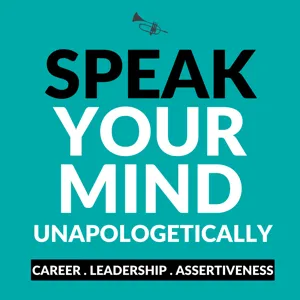Podcast Summary
The Fundamental Attribution Error and Simplistic Explanations: The fundamental attribution error causes us to overestimate dispositional causes and underestimate situational influences, leading to simplistic explanations of people's behavior based on their supposed character traits.
Our perception of people's actions can be influenced by the fundamental attribution error, which causes us to overestimate dispositional causes and underestimate situational influences. This error can lead us to simplistically explain people's behavior based on their supposed character traits, rather than considering the unique circumstances they face. For example, in the movie Alien, Ripley's decision to follow quarantine orders could be attributed to her orderly and logical personality or to the cold cabin and strange situation they were in. Both explanations are valid, but the fundamental attribution error often leads us to focus solely on dispositional causes. Dungeons and Dragons alignments, which were mentioned in the discussion, are a simplistic way of categorizing people based on their supposed character traits. However, real life is more complex, and it's essential to consider both dispositional and situational factors when trying to understand people's actions.
Culture influences how we explain others' behavior: People from collectivist cultures consider situational factors more often, while Americans lean towards dispositional explanations, affecting the Fundamental Attribution Error
The way we explain other people's behavior, known as the Fundamental Attribution Error (FAE), can be influenced by culture. While it was once assumed that the way we make causal judgments is universal, research suggests that this is not the case. A study by Nisbett and Noren Zayyan found that in collectivist cultures like Chinese, Korean, and Japanese, people are more likely to consider situational factors when explaining behavior, compared to individualistic cultures like American where dispositional explanations are more common. This means that people from different cultural backgrounds may have different tendencies when it comes to the Fundamental Attribution Error. For example, Americans might be more prone to underestimating situational constraints and overestimating dispositional explanations, compared to people from collectivist cultures. This is an important reminder of the complex role that culture plays in shaping our thinking and understanding of others.
Cultural differences in explaining causes of events: Asian populations lean towards situational and societal explanations, while Western populations focus on internal dispositions, according to studies on fundamental attribution error (FAE).
The way we explain the causes of events, known as fundamental attribution error (FAE), may differ between cultures. The authors, Noren Zion and Nesbitt, discuss how studies have shown that Asian populations tend to rely more on situational and societal explanations, while Western populations focus more on internal dispositions. This pattern is not limited to human behavior but also extends to the way people perceive the physical world. For instance, in studies involving cartoon fish or ambiguous physical events, Chinese test subjects focused on the external and group factors, while Americans focused on the internal properties of the objects. However, it's important to note that this doesn't mean Asian populations don't use FAE; they do, but only when there's insufficient evidence to support situational or environmental explanations. This research suggests that cultural conditioning may influence how much we rely on FAE and the types of explanations we prefer. The authors also argue for the significance of Greek and Chinese cultures in shaping these tendencies.
Cultural backgrounds shape causal cognition: Greek analytic thinking vs Chinese holistic perspectives influence problem-solving and scientific inquiry, seen in intellectual texts and games like Dungeons and Dragons
Cultural backgrounds shape the way people approach causal cognition, with intellectual histories in East Asia and Europe leading to distinct differences between Chinese and Greek thinking. The authors argue that these foundational cultural systems, rooted in Greek analytic thinking and Chinese holistic perspectives, have influenced everything from problem-solving to scientific inquiry. Greek thinkers, such as Aristotle, focused on categorizing objects based on their attributes to explain behavior, while Chinese thinkers took a more holistic view, considering the context and field in which objects existed. These differences can be seen in various aspects of culture, including intellectual texts and even role-playing games like Dungeons and Dragons, where Western manuals have a strong focus on analyzing attributes and alignments to understand behavior. Ultimately, understanding these cultural influences can provide valuable insights into how different civilizations approach problem-solving and understanding the world around them.
Behavior in Role-Playing Games vs Human Nature: Alignments in role-playing games may not accurately represent human behavior, and maintaining consistent character behavior in storytelling can be challenging as narratives inherently involve some level of deception.
People's behaviors, even for fictional characters in role-playing games like Dungeons and Dragons, can be influenced by their circumstances. The idea that alignments in these games should strictly dictate behavior might not accurately represent human nature. This discussion also touched upon the challenges of maintaining consistent character behavior in storytelling and the inherent nature of narratives being a lie to some extent. Additionally, the episode mentioned the use of Astepro, a fast-acting nasal allergy spray, and promoted the Intel podcast "Technically Speaking" and the Michigan Chronicle Digital Daily.
Cultural differences in thinking and perception: Greek science sought universal rules, while Chinese science was more pragmatic and focused on context. This difference affects how people perceive verticality and their environment.
Despite the interconnectedness of the modern world, the differences between Eastern and Western thinking, as exemplified by Greek and Chinese science and mathematics, still exist. Greek science sought universal rules and essences, while Chinese science was more pragmatic and focused on context. This difference can be observed in the way people perceive verticality in the rod and frame test. East Asian participants, particularly those of Chinese descent, have been shown to be more field dependent, meaning they take the environment into account more than the object itself. This is illustrated in studies using underwater scenes with focal fish, where Asian subjects are more likely to consider the environment as a whole. This holistic perspective was something I experienced during a recent snorkeling trip, where I had to remind myself to take in the rich underwater environment instead of focusing solely on specific fish. These findings suggest that despite globalization, cultural differences in thinking and perception remain.
Understanding the influence of focus on details vs. the whole picture: Field-Dependent and Field-Independent thinking styles impact how we perceive complex environments or experiences, and cultural tendencies might influence this difference.
Our perception of complex environments or experiences, such as a coral reef or an art museum, can be influenced by our focus on details versus the whole picture. This is known as Field-Dependent (FA) and Field-Independent (FI) thinking. The authors of the study mentioned in the discussion found that this difference in thinking styles was not influenced by language or cognitive abilities, but cultural tendencies might play a role. For instance, it's possible that individuals from certain cultures might be more likely to focus on the whole picture rather than the details. The study also showed that most individuals compared had similar demographics and cognitive abilities. Overall, understanding the implications of this difference in thinking styles can help us appreciate the richness and complexity of various environments and experiences.
Bias in attributing others' actions: The Fundamental Attribution Error can be reduced by focusing on situational factors and understanding that people's behavior is often influenced by their circumstances.
The Fundamental Attribution Error (FAE) can lead to poor judgments and harmful prejudices, but it can be overcome by focusing on situational factors. The FAE is an automatic and easily overcome bias, and priming people to consider situational explanations can help them take context into account more comprehensively. For example, if someone is acting anxious, they may not see it as a part of their identity but rather a response to a situation. Priming people to consider the situation can help them understand that the person's behavior is reasonable given the context. While this doesn't always eliminate the FAE, it can make a difference in some cases. Overall, being aware of situational factors and making a conscious effort to consider them can lead to more accurate and rational judgments.
Judging Others Based on Limited Data: To reduce the Fundamental Attribution Error, consider situational factors, encourage others to do the same, get to know people better, recognize how they behave differently under various situational constraints, and attempt to see situations from other people's perspectives.
The Fundamental Attribution Error (FAE) is a common cognitive bias where we make dispositional attributions, or judgments about a person's character based on limited data, often ignoring situational factors. To reduce the commission of the FAE, it's important to take deliberate cognitive effort to consider situational factors and encourage others to do the same. Getting to know people better and recognizing how they behave differently under various situational constraints can also help. Additionally, attempting to see situations from other people's perspectives may also be effective in reducing the FAE tendency. The FAE is a universal phenomenon and has been observed across cultures. It's crucial to remember that people's actions are influenced by various factors beyond their control and to strive to understand the full context before making judgments. Overall, being mindful of the FAE and making a conscious effort to consider situational factors can lead to more accurate and fair judgments of others.
Affordable and Accessible Options for Staying Connected, Informed, and Entertained: Visible offers an unlimited data plan for $25/month, Michigan Chronicle Digital Daily provides an authentic black community perspective, and Xumo Play offers free, endless entertainment with no sign-ups or accounts required.
There are affordable and accessible options for staying connected and entertained. Visible offers an unlimited data plan with no hidden fees starting at just $25 a month. The Michigan Chronicle Digital Daily provides an authentic perspective on Detroit's black community and its stories. NASCAR fans can listen to live races on the Motor Racing Network or MRN, and Xumo Play offers free, endless entertainment with no sign-ups or accounts required. For those looking to stay connected, Visible's affordable and unlimited data plan is a great option. With no hidden fees and taxes and fees included in the monthly price, it's a transparent and reliable choice. For those interested in staying informed and connected to their community, the Michigan Chronicle Digital Daily is an excellent resource. With a focus on elevating black voices and stories, it offers an authentic perspective that can't be found elsewhere. And for entertainment, Xumo Play is a free and convenient option. With a diverse lineup of live channels, movies, and TV series, there's something for everyone. Plus, with no sign-ups or accounts required, it's a hassle-free way to stream. In summary, whether it's staying connected, informed, or entertained, there are affordable and accessible options available. Visible, the Michigan Chronicle Digital Daily, and Xumo Play all offer unique benefits and are worth considering.



![Robs Rant: Why Your Problems Are NOT Problems [Business, mindset, entrepreneur, disruptors]](https://www.podcastworld.io/podcast-images/disruptors-kt0uj0xy.webp)


